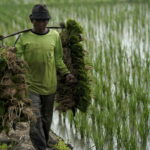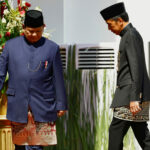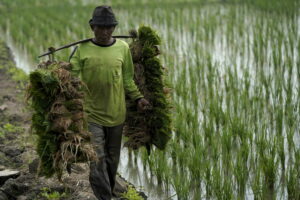Over the six days of Fan Week at the 2023 US Open, the mission of the United States Tennis Association could truly be seen in action in every corner of the USTA Billie Jean King National Tennis Center.
As the national governing body for tennis in the U.S., the USTA’s chief goal is attract, maintain and retain a diverse pool of players at all levels both now and in the future, and Fan Week, where access to the US Open grounds is free and open to the public, is integral to achieving that. Along with the world-class tennis played during the US Open Qualifying Tournament, and the showcase events planned each night, Fan Week is also a vehicle to bring tennis to communities that have been historically underrepresented in the sport.
Over the last three years, U.S. tennis participation has increased by nearly six million people, a 33% bump since the start of 2020. Much of that growth has been driven by new players from diverse communities, and people of color now represent 38% of the U.S. tennis-playing population, up from 32.5% in 2019.
This year in Queens, the USTA paired its most robust schedule of inclusive US Open events in its recent history to celebrate the present milestone, and lay the seeds for an even richer tomorrow.
“The whole purpose of these events is to make communities feel welcome,” Natalia Pedroza, a director for diversity and inclusion for the USTA, said. “We have a mass representation of different communities here, so why not have them show up at the Open?”
On the court, the tournament hosted two tennis clinics for children: one in partnership with the USTA Eastern section and the Asian American and Pacific Islander Tennis Association, which featured former US Open women’s doubles champion and USTA board member Vania King; and another with Jack & Jill of America (with the help of the Howard University tennis team), an national nonprofit founded in 1938 that supports and encourages the leadership aspirations of Black youth.
“This is the place where you can impact someone’s life the most,” King said. “I’m just very excited and passionate that the US Open shares the vision of providing opportunities to kids that otherwise might not have them.”

Off the court, Fan Week kicked off Tuesday with a performance by the Chinatown Young Community Lions, who performed a traditional lion dance as a way to wish the tournament, and all the players, luck for the next three weeks. In addition, entertainment booked for the Fan Week Stage in the South Plaza showcased many of the other diverse communities that call New York City home.
Performers included Ballet Hispánico, the largest Latinx cultural organization in the U.S.; Tonewall, the a cappella band of the New York City Gay Men’s Chorus; and Gotham Cheer, an LGBTQ+ adult community cheerleading team.
Andrea Snead, a director of diversity and inclusion at the USTA, said the reaction of the fans to the programming was “incredible.”
“Many folks have been coming up to us, asking where they can find these performers elsewhere,” Snead said, while also noting that many of the performers equally raved about their US Open experience.

They all played a part in making Fan Week a record-setting success. Over its first five days, Fan Week welcomed more than 100,000 fans through the gates of the USTA Billie Jean King National Tennis Center, as well as more than 40,000 on Arthur Ashe Kids’ Day—both new all-time highs.
Events encouraging this spirit of inclusion will continue into the US Open main draw, with the tournament’s annual celebration of Historically Black Colleges and Universities (HBCUs) and the LGBTQ+ community scheduled for Aug. 30 and 31, respectively.
Having these events on the signature stage for American tennis, Snead says, is only a positive for the longterm health and vitality of the sport. Prior to the start of Fan Week, the US Open was named a safe space for the LGBTQ+ community by the historic Stonewall Inn, the birthplace of the U.S. LGBTQ+ rights movement.
“The importance of having these events is people love to go where they see themselves,” Snead said. “If we want tennis to look like and engage everyone, then we want to make sure that everything we’re doing here on the grounds is representing everyone.”















